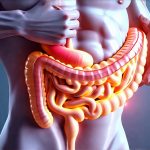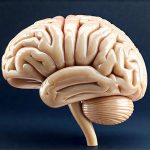The pursuit of creativity, unwavering confidence, and adaptable mental flexibility are hallmarks of a fulfilling life. Often, we attribute these qualities to inherent talent, rigorous training, or sheer willpower. However, an emerging field of research suggests that a significant – and often overlooked – contributor lies within our gut: the gut microbiome. This complex ecosystem of trillions of microorganisms residing in our digestive tract is no longer viewed merely as a passive player in digestion but as a dynamic organ intricately connected to our brain via what’s known as the “gut-brain axis.” Understanding this connection is revolutionizing how we approach mental well-being and unlocking potential avenues for enhancing cognitive function, emotional resilience, and creative expression.
For centuries, intuition and anecdotal evidence pointed towards the link between gut health and overall wellness. Now, science is catching up, revealing a bidirectional communication network between our digestive system and brain. This isn’t simply about physical sensations; the microbiome influences neurotransmitter production (like serotonin and dopamine), immune function, and even stress response – all vital components of mental state. The composition of your gut microbiome—the diversity and abundance of bacterial species—can significantly impact how you think, feel, and behave, shaping everything from mood to motivation. This profound relationship necessitates a shift in perspective, recognizing the gut as an integral part of our psychological landscape. Understanding gut inflammation is crucial for overall health.
The Gut-Brain Axis & Creative Flow
The concept of “flow state” – that feeling of complete absorption, energized focus, and effortless execution – is often described by artists, musicians, writers, and innovators. It’s a state many actively seek but can be elusive. Traditionally, achieving flow has been linked to skills mastery, clear goals, and minimized distractions. However, the gut microbiome adds another layer to this understanding. The gut-brain axis facilitates communication through several pathways including the vagus nerve—a major cranial nerve connecting the gut directly to the brain—and via the production of neurochemicals.
- A healthy and diverse microbiome promotes optimal vagal tone, leading to improved parasympathetic nervous system activity (the ‘rest and digest’ response). This calm state is conducive to focused attention and reduced anxiety, both critical for entering flow.
- Certain gut bacteria are involved in producing neurotransmitters vital for creativity, such as dopamine, which fuels motivation and reward, and serotonin, regulating mood and emotional balance. An imbalance in these neurochemicals can hinder creative expression.
- The microbiome also influences the hypothalamic-pituitary-adrenal (HPA) axis, our body’s central stress response system. A dysbiotic gut (imbalance of microbes) can lead to chronic inflammation and HPA axis dysfunction, increasing cortisol levels which are detrimental to flow states and cognitive flexibility. Recognizing gut microbiome balance is a key step towards wellbeing.
Essentially, a flourishing gut microbiome doesn’t create creativity, but it lays the foundation for the neurological conditions necessary for it to emerge. It’s about optimizing brain function by nurturing the microbial ecosystem that supports it. Studies have begun showing correlations between specific bacterial strains and enhanced cognitive performance in creative tasks, though this remains an area of active research. The role of gut microbiome diversity is also significant here.
Confidence & The Microbiome’s Role In Emotional Regulation
Confidence isn’t merely a matter of self-belief; it’s deeply intertwined with emotional regulation. When we feel secure and capable, our brains function optimally, allowing us to take risks, embrace challenges, and express ourselves authentically. Conversely, anxiety, fear, and self-doubt can paralyze creative impulse and stifle confidence. The gut microbiome plays a surprisingly significant role in this complex interplay.
The link between the gut and emotional regulation stems from its influence on the brain’s limbic system – the region responsible for processing emotions. As mentioned earlier, the microbiome affects neurotransmitter production, particularly serotonin. Serotonin is often called the “happiness molecule”, but it’s also crucial for modulating fear and anxiety. A dysbiotic gut can lead to reduced serotonin levels, contributing to increased emotional reactivity and decreased self-assurance.
Furthermore, the microbiome impacts the immune system, and chronic inflammation – often linked to an imbalanced gut – has been shown to exacerbate anxiety and depression symptoms. The inflammatory molecules released by the immune system can directly impact brain function, hindering cognitive performance and fostering negative thought patterns. A robust and diverse microbiome helps maintain a healthy balance between the immune system and the brain, promoting emotional stability and bolstering self-confidence. This isn’t about eliminating all stress; it’s about equipping your body with the tools to manage stress effectively. Understanding gut movement is also important for overall health.
Cultivating A Creativity-Boosting Microbiome: Dietary Strategies
The good news is that you can actively influence your gut microbiome through lifestyle choices, particularly diet. While there’s no one-size-fits-all approach, several strategies are consistently recommended for promoting a healthy and diverse microbial ecosystem.
- Prioritize prebiotic foods: Prebiotics are non-digestible fibers that serve as food for beneficial gut bacteria. Excellent sources include garlic, onions, leeks, asparagus, bananas (slightly green), oats, and apples. Incorporating these into your diet helps nourish the microbes you want to thrive.
- Embrace fermented foods: Fermented foods like yogurt (with live cultures), kefir, sauerkraut, kimchi, kombucha, and miso are rich in probiotics – live microorganisms that can directly colonize the gut. Introduce them gradually to avoid digestive upset.
- Reduce processed foods, sugar, and artificial sweeteners: These negatively impact microbiome diversity, promoting the growth of harmful bacteria and contributing to inflammation. A whole-foods diet is generally best.
It’s important to note that dietary changes take time to show results. Consistency is key. Consider keeping a food journal to track your intake and observe how different foods affect your mood, energy levels, and creative output. The role of the gut-brain axis in all this is undeniable.
The Importance of Stress Management & Microbiome Health
Stress has a profound impact on the gut microbiome – and vice versa. Chronic stress can disrupt the delicate balance of microbes, leading to dysbiosis and exacerbating anxiety and depression symptoms. This creates a vicious cycle where stress negatively impacts the gut, which then further amplifies emotional distress. Breaking this cycle requires proactive stress management techniques.
- Mindfulness meditation: Regular mindfulness practice has been shown to reduce cortisol levels (the stress hormone) and improve vagal tone, promoting a healthier gut-brain connection.
- Regular exercise: Physical activity releases endorphins, natural mood boosters that also help reduce stress. Exercise can also positively influence microbiome diversity.
- Adequate sleep: Sleep deprivation disrupts the microbiome and increases inflammation. Aim for 7-9 hours of quality sleep per night.
These strategies aren’t just about reducing stress; they are about actively nurturing a resilient nervous system and a thriving gut microbiome, creating a virtuous cycle of well-being. Stress management isn’t simply self-care; it’s an investment in your creative potential. The importance of fasting and refeeding should not be overlooked either.
Beyond Diet & Stress: Other Factors To Consider
While diet and stress management are foundational, other factors can also influence the gut microbiome and its impact on creativity, confidence, and mental flexibility. These include:
- Antibiotic use: Antibiotics, while sometimes necessary, can disrupt the microbiome, killing both harmful and beneficial bacteria. If you need to take antibiotics, consider supplementing with probiotics after completing the course (consult a healthcare professional).
- Environmental factors: Exposure to toxins, pollutants, and certain chemicals can negatively impact the microbiome. Minimize exposure whenever possible.
- Social connection: Research suggests that strong social connections are associated with greater microbiome diversity. Social isolation can have a detrimental effect on gut health.
The gut microbiome is a dynamic ecosystem, constantly adapting to our environment and lifestyle. Understanding this complexity allows us to make informed choices that support not only digestive health but also cognitive function, emotional well-being, and creative expression. It’s about recognizing the interconnectedness of mind and body – and harnessing the power within your gut to unlock your full potential.


















